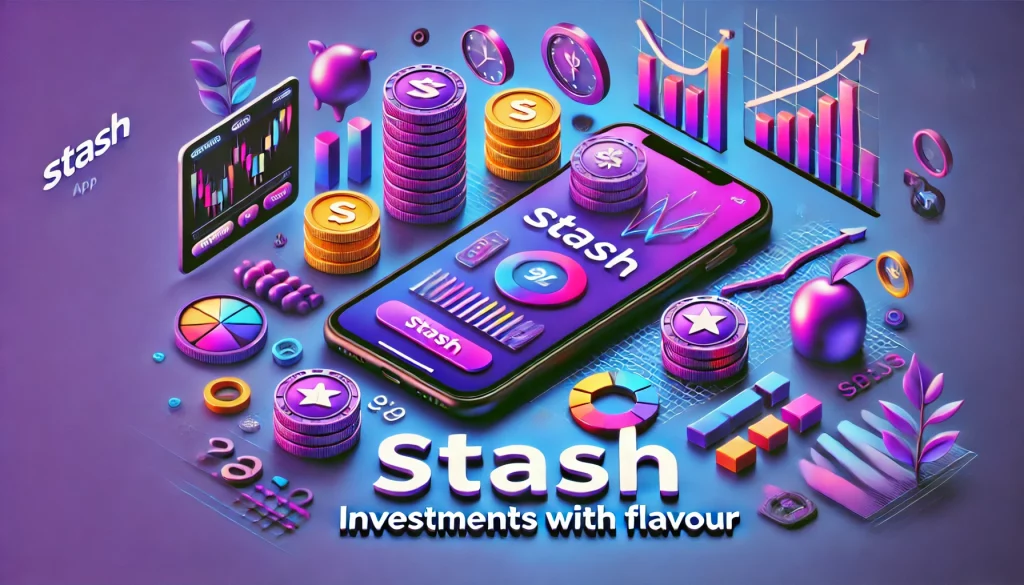Invest Wisely: Top 7 Investment Apps for 2024
Oi, investor mates! Ready to level up your investment game? It’s 2024, and the financial world ain’t standing still. Today, I’ll spill the beans about seven cracking Android apps that’ll help you become proper investment sharks. Let’s crack on!
- 1. Robinhood: Investments for the People
- Robinhood’s ace features:
- 2. Acorns: Small Change Today – Gold Tomorrow
- Why Acorns is the dog’s bollocks:
- 3. Webull: For Those Who Like to Dig Deeper
- What’s ace about Webull:
- 4. Stash: Investments with Flavour
- Why Stash is trendy, fashionable, youthful:
- 5. M1 Finance: For DIY Enthusiasts
- Why M1 Finance is ace:
- 6. Coinbase: For Those Who Believe in Crypto
- Why Coinbase is the crypto enthusiasts’ choice:
- 7. Personal Capital: For Those Who Like to See the Big Picture
- Why Personal Capital is powerful:
- Comparative Table of Apps
- Expert Opinion
- How to Choose the Perfect Investment App?
- Tips for Safe Use of Investment Apps
- Frequently Asked Questions
- Conclusion
But first, a bit of stats to show you how relevant this is. According to Statista, by 2024, mobile investments will hit a stonking £3.5 trillion. And a J.D. Power study shows that 36% of millennials prefer managing investments via mobile apps. Proper mental, innit?
1. Robinhood: Investments for the People
Robinhood’s like a Swiss Army knife in the investment world. This app’s blown the market wide open with its simplicity and accessibility. Imagine trading stocks, ETFs, and cryptos without commission! Sounds like a fairy tale, but it’s the real deal.
Robinhood’s ace features:
- User-friendly interface – even your nan could suss it out
- Fractional shares – you can buy a slice of a pricey share
- Instant deposits – money in your account quicker than you can say “Bob’s your uncle”
But it’s not all roses. Robinhood’s got its snags. For instance, limited investment tools and lack of serious analytics. But for newbies – it’s just the ticket!
2. Acorns: Small Change Today – Gold Tomorrow
Acorns is like a piggy bank on steroids. The app rounds up your daily spends and invests the difference. Bought a coffee for £3.60? £0.40 goes into your investment portfolio. Genius and simple!
Why Acorns is the dog’s bollocks:
- Automatic investments – set it and forget it
- Educational content – learn while you earn
- Partner programme – get bonuses from purchases with partners
But there are downsides. The monthly fee can eat into profits on small amounts. And the portfolio choice is limited. But for those who want to invest without the faff – it’s spot on!
3. Webull: For Those Who Like to Dig Deeper
Webull is like Robinhood on steroids. Here you’ll find more advanced analysis and trading tools. If you’ve outgrown the “numpty” level and want to dig deeper – this is your cuppa tea.
What’s ace about Webull:
- Advanced analytics – charts, indicators, the whole shebang
- After-hours trading – catch the moment 24/7
- Trading simulator – practise without risking your dosh
But be ready for a more complex interface and no fractional shares. On the flip side, you can trade options and short – for the seasoned wolves of Wall Street.
4. Stash: Investments with Flavour
Stash is like if investments met Instagram. Here you can invest in themed portfolios with cool names like “American Innovations” or “Socially Responsible Business”.
Why Stash is trendy, fashionable, youthful:
- Themed portfolios – invest in what resonates with you
- Educational content – learn on the go
- Bank account with cashback – earn on purchases
But be ready for a monthly fee and limited choice of individual stocks. On the bright side, you can invest in line with your values!
5. M1 Finance: For DIY Enthusiasts
M1 Finance is like LEGO in the investment world. Here you can create your own investment “pies” from stocks and ETFs. Want 50% Tesla, 30% Apple, and 20% in clean energy ETF? Easy peasy!
Why M1 Finance is ace:
- Customisable portfolios – craft your own investment strategy
- Automatic rebalancing – maintain desired proportions without effort
- Portfolio-backed borrowing – get loans at low interest rates
But note, there’s no active trading and no mutual funds support. However, for long-term investors – it’s just the ticket!
6. Coinbase: For Those Who Believe in Crypto
Coinbase is like Fort Knox in the crypto world. If you want to add Bitcoin and other cryptocurrencies to your investment portfolio, this app is your best mate.
Why Coinbase is the crypto enthusiasts’ choice:
- Wide range of cryptocurrencies – from Bitcoin to exotic altcoins
- High security – sleep tight, your coins are safe as houses
- Educational programmes – earn crypto while learning about it
But be ready for high fees and possible delays during high market volatility. On the flip side, you can feel like a proper crypto investor!
7. Personal Capital: For Those Who Like to See the Big Picture
Personal Capital is like a financial GPS for your wealth. It’s not just an investment app, but a whole financial control centre. Here you can track all your accounts, investments, and even pension savings in one place.
Why Personal Capital is powerful:
- Complete financial overview – all your assets at your fingertips
- Fee analysis – find out how much you’re losing on hidden charges
- Retirement calculator – plan your future wisely
But note that access to personal consultations requires a solid balance. However, basic functions are free and dead useful!
Comparative Table of Apps
| App | Fees | Minimum Deposit | Cryptocurrencies | Educational Content |
|---|---|---|---|---|
| Robinhood | None | £0 | Yes | Limited |
| Acorns | £1-3/month | £5 | No | Extensive |
| Webull | None | £0 | Yes | Moderate |
| Stash | £1-9/month | £0 | No | Extensive |
| M1 Finance | None | £100 | No | Moderate |
| Coinbase | Vary | £2 | Yes | Extensive |
| Personal Capital | 0.49-0.89% | £100,000 for managed portfolios | No | Extensive |
Expert Opinion
I asked my mate, financial guru Alex Morris, to share his thoughts on investment apps. Here’s what he said:
“Investment apps are like a Swiss Army knife in the pocket of a modern investor. They provide 24/7 market access, allow portfolio diversification with one tap, and let you learn on the go. But remember: technology is a tool, not a magic wand. Success in investing still requires knowledge, discipline, and patience.”
Wise words, bruv!
How to Choose the Perfect Investment App?
Choosing an investment app is like picking a pair of trainers. You need to find what fits you perfectly. Here are a few tips:
- Define your goals. Do you want to actively trade or invest long-term?
- Assess your experience. Newbies better start with simple apps like Robinhood or Acorns.
- Consider the fees. Even small fees can eat into your profits over time.
- Check available tools. Do you need stocks, ETFs, options, or cryptocurrencies?
- Evaluate educational content. A good app should help you learn.
Tips for Safe Use of Investment Apps
- Use two-factor authentication. It’s like an extra lock on your financial house door.
- Don’t open the app via public Wi-Fi. It’s like shouting your password across Times Square.
- Regularly update the app. New versions often contain important security updates.
- Don’t share your login details. Even if “customer support” asks for it in Instagram DMs.
- Use complex passwords. “123456” isn’t a password, it’s an invitation for hackers.
Frequently Asked Questions
Question: Is it safe to use investment apps?
Answer: If you follow basic security rules – yes. Choose verified apps, use two-factor authentication, and don’t share your data.
Question: How much money do I need to start investing through an app?
Answer: It depends on the app. Some, like Robinhood or Webull, let you start with £0. Others might require a minimum deposit from £5 to £100.
Question: Can I lose money investing through apps?
Answer: Yes, investments always involve risk. Never invest more than you’re prepared to lose.
Conclusion
So, mates, we’ve zipped through seven of the coolest investment apps of 2024. From simple Robinhood to powerful Personal Capital – each of them can be your key to financial success. Remember, it’s not about the app, but your approach to investing. Learn, analyse, and don’t forget about diversification.







